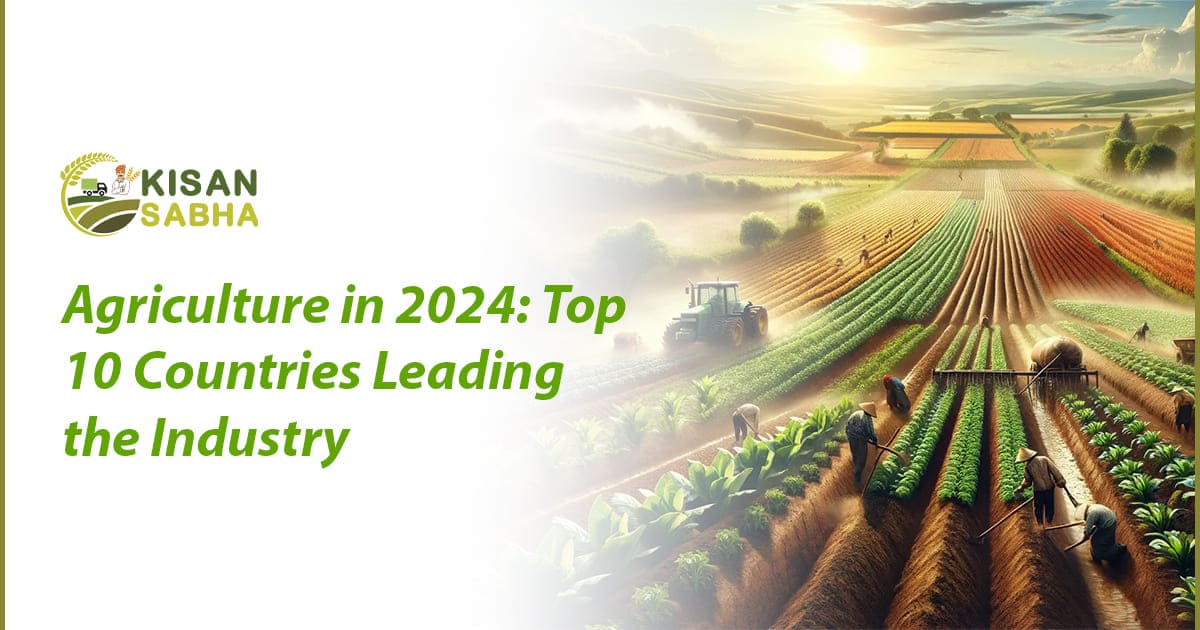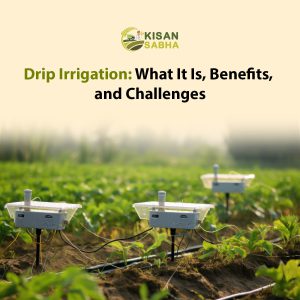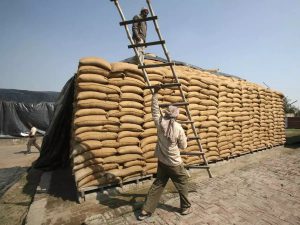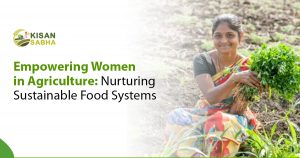Agriculture is a critical sector that contributes significantly to global food production and the economy of many nations. Understanding the top agriculture production countries is essential for analyzing trends, identifying key players, and evaluating the global agricultural landscape. In this article, we will provide an in-depth analysis of the top 10 agriculture production countries based on the latest statistics for 2024. We will explore their agricultural practices, key crops, technological advancements, and the factors that contribute to their success. Let’s dive in and discover the agrarian powerhouses of the world.
Top 10 Countries Shaping the Industry
China
China sits at the top of the list as the world’s leading agricultural producer. With its vast land area, favorable climate conditions, and advanced farming techniques, China has established itself as an agricultural powerhouse. The country produces a diverse range of agricultural products, including staple crops such as rice, wheat, and corn. Additionally, China excels in fruit and vegetable production and a significant livestock industry.
United States
The United States ranks second in agricultural production, driven by its large-scale farming operations and advanced technology. The country is known for its production of corn, soybeans, wheat, and cotton. The United States also boasts a remarkable livestock industry, with beef and poultry being significant contributors.
India
India secures the third spot as a major agricultural producer. The country’s diverse climate and fertile soils facilitate the cultivation of staple crops like rice, wheat, sugarcane, and cotton. With a vast population engaged in agriculture, India’s agricultural practices range from small-scale subsistence farming to larger commercial operations.
Brazil
Brazil’s agricultural sector has grown substantially, making it the fourth-largest agricultural producer globally. The country’s large-scale commercial farming operations, advanced technology, and favorable climate contribute to its success. Also, Brazil is renowned for its production of soybeans, coffee, sugarcane, and beef.
Russia
Russia’s expansive land area and favorable climate conditions make it the fifth-largest agricultural producer. The country specializes in the cultivation of crops such as wheat, barley, oats, and sunflower seeds. Russia also boasts a significant livestock industry, particularly in beef and dairy production.
Also Read:- Natural and Organic Fertilizers: Cultivating Beautiful and Healthy Crops
Indonesia
Indonesia ranks sixth in global agricultural production, leveraging its tropical climate for the cultivation of key crops such as rice, palm oil, coffee, and cocoa. The country also has a significant fishery and aquaculture industry, contributing to its agricultural output.
Nigeria
Nigeria secures the seventh position with its fertile lands and diverse climate that support the cultivation of crops like cassava, yams, maize, and cocoa. The country also has a significant livestock industry, particularly in poultry and cattle production.
Japan
Despite its limited land area, Japan is the eighth-largest agricultural producer globally. The country’s advanced technology and precision farming techniques enable efficient use of available land. Japan focuses on the production of rice, vegetables, fruits, and seafood.
Germany
Germany ranks ninth in agricultural production, known for its modern farming techniques and strict quality standards. However, the country excels in the production of dairy products, grains, potatoes, and pork. Germany’s agricultural practices prioritize sustainability and environmental stewardship.
France
France concludes the top 10 agriculture production countries list, celebrated for its diverse agricultural industry. Therefore, the country excels in the production of wine, cheese, wheat, corn, and poultry. France’s agricultural practices prioritize quality, tradition, and sustainable farming methods.
Conclusion
Understanding the top 10 agriculture production countries provides valuable insights into global food production, economic contributions, and agricultural practices. Firstly, these countries showcase a variety of factors that contribute to their success, including favorable climate conditions, advanced technology, and diverse agricultural industries. Additionally, from China’s massive production scale to France’s emphasis on quality and tradition, each country plays a vital role in feeding the world’s population.
Moreover, by monitoring trends in these agricultural powerhouses, policymakers, researchers, and stakeholders can make informed decisions to enhance global food security and sustainable agricultural practices. Lastly, this knowledge can help identify opportunities for collaboration and knowledge exchange among countries to further improve agricultural productivity worldwide.





